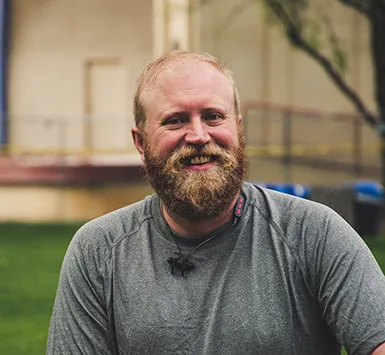Table of Contents
- All about NDIS goals for psychosocial disabilities
- Where do the NDIS plan goals come from?
- What do NDIS goals look like for someone with a mental health condition?
- What are NDIS goals used for?
- Example goal 1: Better manage my medication
- Example goal 2: Better manage my money
- Example goal 3: Manage my time and keep my appointments
- Using your goals to choose mental health supports
- Help! I don’t like the goals in my NDIS plan
- Checklist for creating great goals
All about NDIS goals for psychosocial disabilities
If you have an NDIS plan for a psychosocial disability that has resulted from a mental health condition, your plan will contain goals. All NDIS plans have goals and the NDIA says that “goals are things you want to pursue”. So, this could be anything that you want to work towards that can help you with a more independent and fulfilling life. Pretty broad, isn’t it? The goals in an NDIS plan are generally goals that you want to work towards over the duration of your plan, usually one to three years. Goals, of course, will be very specific to you personally, and your current life stage. If there’s one thing we know about at Goal Coach, it’s goals! (And also a few other things, so make sure you check out the other articles on the Goal Hub. We specialise in helping people with mental health conditions to live life well and achieve their goals. While NDIS plan goals are important for building your plan and getting your mental health supports, they’re really just a part of a much bigger picture. We also know that it’s what you do with your goals and how you work towards them that really matters. In this article, we look at how to choose the right goals for you, how to work towards your goals once you have them, and what to do if you’re stuck with NDIS goals you’re not sure about.
Where do the NDIS plan goals come from?
When you meet with the NDIA planner or local area coordinator (LAC) to discuss your new plan, you decide on the goals in your plan – what you want your NDIS plan to help you achieve. Goals are usually around things like improving independence and community connection, but they are absolutely individual to you, so they need to be about what you want to achieve. Once you have your goals, you and the planner or LAC will identify the supports you need to help you work towards those goals. Your plan will include the number of hours of support you will need and the cost. The goals listed in your plan should ideally be goals you have chosen yourself, but sometimes the NDIA planner or LAC will help fill this in for you. It can be really hard to come up with goals, so if you’re not sure if the goals in your plan are the best ones, don’t stress. Scroll to the bottom of this article for our handy checklist to help you create great goals.
What do NDIS goals look like for someone with a mental health condition?
Here are some examples of common goals we see in NDIS plans for people with psychosocial disabilities:
- living independently or more independence in daily life
- building your skills and doing more things yourself
- getting a job or studying to help you get a job
- budgeting skills
- improving communication
- building social skills, making new friends, maintaining relationships
- better managing medication
- better managing money
- managing time and keeping appointments.
The most important thing is not necessarily the goal that’s listed in your plan, it’s how you break that goal down into steps so that you can work towards it bit by bit.
What are NDIS goals used for?
The goals in your NDIS plan are often very high level and not very specific (like the ones above!). Your NDIS supports should help you to work towards these goals but it can be difficult to know how to start. A good place to start is to break the NDIS goals down into smaller, more specific goals. If you’re stuck or you want some help with this, Goal Coach specialises in working with you on your recovery journey at your own pace, to get you closer to your goals. Instead of big scary goals, we help break them down into manageable steps and support you along the way. Using ‘SMART’ goals can also help to set you up for success. SMART stands for specific, measurable, achievable, realistic, and timely. It can help give you a better sense of direction, helping you reach your goals. SMART goals are:
- Specific: Well-defined, clear, not too open or vague.
- Measurable: So you can measure your progress toward the accomplishment of the goal.
- Achievable: Not too hard or impossible to achieve.
- Realistic: Within reach, realistic, and relevant to your outcomes and purpose.
- Timely: With a clearly defined timeline, including a starting date and a target date.
Let’s look at some of our example goals from earlier, and the many shorter-term goals that will help toward each overall goal:
Example goal 1: Better manage my medication
- Set up a daily plan
- Read about the medication
- Write down questions to ask my doctor
- Keep track of my side effects.
Example goal 2: Better manage my money
- Set up a savings account
- Understand where I spend my money
- Work up a weekly budget
- Make weekly meal plans.
Example goal 3: Manage my time and keep my appointments
- Work out the best time of the day for me to have appointments
- Set up a diary system
- Get text message reminders
- Ask people to call in the morning to remind me.
Breaking down the big goal into smaller goals can help you stay focused and on track. It’s also really encouraging when you can tick things off along the way and see your progress. First, think about skills you may need to develop and what assistance you might need to reach your main goal. It is useful to identify who is going to support you and when this is going to happen. A recovery coach can help you come up with the steps to achieving your big goals – they are experienced at this and it can be really helpful to have that outside perspective to guide you. It is also important to decide when you think it is realistic that the goal will be achieved or build in review times to see how things are tracking. These check-ins are important because they can help you to see if there are any barriers and if you need to make any adjustments along the way. Using SMART goals assists with a sense of direction, helping you organise supports and reach your goals. Having a recovery coach also helps to keep you on track with your progress, encouraging you, believing in you, keeping you accountable, and celebrating the wins with you. They help keep you motivated, focusing on your strengths and resilience.
Using your goals to choose mental health supports
Your goals should help you to make choices about the supports you want and need to achieve them. But even when you have your goals in front of you, it can still be hard to work out what services you need to help you work towards them. There are so many services available and it can be really confusing. This is where a recovery coach can be helpful for someone with a mental health condition. A recovery coach will help you choose, book and manage your support services while keeping you in control of the decisions – they’re your services, so the coaches are just there to assist. They can also help to keep services informed of your choices and the way you prefer to be supported. This is also why it’s so important to have an independent recovery coach – someone completely separate from your other supports and workers. An independent recovery coach can work with your other providers to ensure they understand your preferences and deliver on those. This can include giving feedback and advice to workers – so it’s much better if they’re not affiliated with those providers and there’s no conflict of interest.
Help! I don’t like the goals in my NDIS plan
Just because certain goals are listed in your plan, it doesn’t mean you are locked into those. And if there are things you want to work towards that are NOT listed in your plan, nothing is stopping you from doing that. It’s your life, after all! A recovery coach, like our experienced coaches at Goal Coach, will work with you to focus on what’s important to you and find solutions so that you can live your life well. NDIS funding is not the only way you can get supports to work towards your goals. There are informal supports (like friends and family), education system supports (like extra classroom support) and services provided through the health system. When you work with Goal Coach, we take a holistic view of the support in your life. We don’t just look at your NDIS plan – we look at all the support you have available to you, and how it all fits together.
Checklist for creating great goals
- Think about the things that make you feel happy and fulfilled, but also the things that you’d like to change, or be better at.
- An NDIS plan usually goes for 1-3 years. What would you like your life to look like in a few years?
- The NDIA’s suggested goal areas could be useful, although you don’t need to stick to these:
- building your skills and doing more things yourself
- working or studying now or in the future
- doing social and recreation activities now or in the future
- building friendships or connecting with your family.
- When you have come up with some ideas, work through the SMART list to create each idea into a goal that is:
- Specific: Well-defined, clear, not too open or vague.
- Measurable: So you can measure your progress toward the accomplishment of the goal.
- Achievable: Not too hard or impossible to achieve.
- Realistic: Within reach, realistic, and relevant to your outcomes and purpose.
- Timely: With a clearly defined timeline, including a starting date and a target date.
- Breaking down each goal into steps can help you test whether your goal is right – if you have trouble figuring out how you would reach your goal, you might need to go back and tweak it. And if the steps all make sense – you’re already on your way to getting started!
If you want to find out more about how recovery coaching can help you manage a psychosocial disability, book a free 15-minute chat with one of our friendly coaches.










